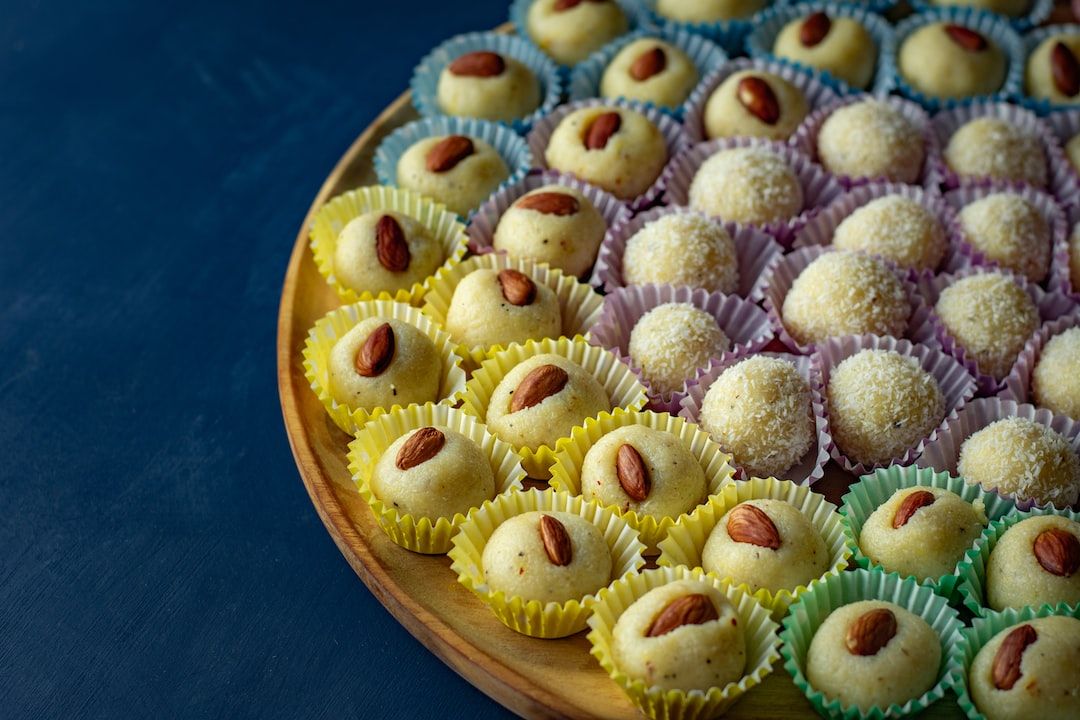
Diwali5 Traditional Diwali Sweets and Their Symbolism

Introduction to Diwali and its significance
Diwali, also known as the Festival of Lights, is one of the most significant and widely celebrated festivals in India. It symbolizes the victory of light over darkness and good over evil. During this joyous occasion, families come together to celebrate by lighting oil lamps, decorating their homes, exchanging gifts, and, of course, indulging in delicious sweets. Sweets hold a special place in the hearts and traditions of Diwali, as they are believed to bring good luck and prosperity. Let's delve into the world of traditional Diwali sweets and explore their cultural significance.
The importance of sweets in Diwali celebrations
Sweets play a pivotal role in Diwali celebrations, as they are seen as an offering of goodwill and a way to spread joy and happiness. The act of sharing sweets during Diwali is symbolic of sharing the sweetness of life with loved ones and fostering a sense of togetherness. It is believed that offering and consuming sweets during Diwali brings blessings and ensures a prosperous year ahead. These delectable treats are not only a delight for the taste buds but also a reflection of the rich cultural heritage and traditions associated with the festival.
Traditional Diwali sweets and their cultural significance
Gulab Jamun - the essence of love and togetherness
Gulab Jamun, with its heavenly aroma and melt-in-your-mouth texture, is a quintessential Diwali sweet. These golden-brown dumplings made from khoya (reduced milk solids) are soaked in rose-scented sugar syrup, giving them their distinct flavor. Gulab Jamun represents the essence of love and togetherness, as it is often shared among family and friends during Diwali. The round shape of the jamuns symbolizes unity and completeness, reminding us of the importance of staying connected and embracing the sweetness of relationships.
Jalebi - a symbol of prosperity and good luck
Jalebi, with its intricate spiral shape and vibrant orange color, is a sweet treat that is synonymous with celebrations, including Diwali. Made by deep-frying a fermented batter of all-purpose flour and soaking it in sugar syrup, Jalebi is crispy on the outside and syrupy on the inside. Its coiled shape is believed to represent the cyclical nature of life and the continuous flow of good fortune. By consuming Jalebi during Diwali, it is believed that one invites prosperity and good luck into their lives.
Kaju Katli - the sweetness of wealth and success
Kaju Katli, also known as Kaju Barfi, is a diamond-shaped sweet made from cashew nuts, sugar, and ghee (clarified butter). It is a rich and decadent treat that is often gifted and savored during Diwali. The diamond shape of Kaju Katli symbolizes wealth and success. It is believed that consuming this sweet during Diwali brings abundance and prosperity into one's life. The smooth and melt-in-your-mouth texture of Kaju Katli represents the sweetness of achieving one's goals and aspirations.
Rasgulla - the embodiment of purity and joy
Rasgulla, a popular Bengali sweet, holds a special place in Diwali celebrations. These spongy and syrupy balls of cottage cheese, known as chhena, are cooked in a sugar syrup and served chilled. Rasgulla represents purity and joy, as it is made from simple ingredients and has a light and refreshing taste. The soft and delicate texture of Rasgulla is a reminder to embrace the simple pleasures in life and find joy in the little things.
Laddu - the spherical delight of happiness and fulfillment
Laddu, also known as ladoo, is a round-shaped sweet that is enjoyed during various festive occasions, including Diwali. Made from a mixture of flour, sugar, and ghee, Laddu comes in various flavors and varieties. Its spherical shape symbolizes completeness and perfection. Laddu is considered to be a representation of happiness and fulfillment. By consuming Laddu during Diwali, it is believed that one invites joy and contentment into their lives.
How to make these Diwali sweets at home
Making Diwali sweets at home can be a wonderful way to celebrate the festival and create lasting memories. While the process may seem intimidating, it can be a rewarding experience. There are numerous recipes available online that provide step-by-step instructions for making traditional Diwali sweets. By following these recipes and putting in a little effort, you can impress your loved ones with homemade treats that carry the essence of the festival.
Where to buy authentic Diwali sweets
If you prefer to indulge in the traditional Diwali sweets without the hassle of cooking, there are various places where you can buy authentic and delicious treats. Local sweet shops and confectioneries often offer a wide range of Diwali sweets during the festive season. Additionally, many online platforms specialize in delivering authentic Indian sweets, allowing you to savor the flavors of Diwali no matter where you are. It is important to choose trusted vendors who use high-quality ingredients and maintain hygiene standards.
Conclusion: The sweetness of Diwali traditions
Diwali is a time of joy, togetherness, and celebration. Traditional Diwali sweets hold a special place in the festivities, as they symbolize love, prosperity, wealth, purity, and happiness. By understanding the cultural significance of these sweets, we can appreciate the deeper meaning behind sharing and consuming them during Diwali. Whether you choose to make these sweets at home or buy them from trusted vendors, the sweetness they bring to the festival is a reminder of the traditions that bind us together and the hope for a brighter future. So, this Diwali, let the aroma of sweets fill your home and your heart with joy.
Appreciate the creator